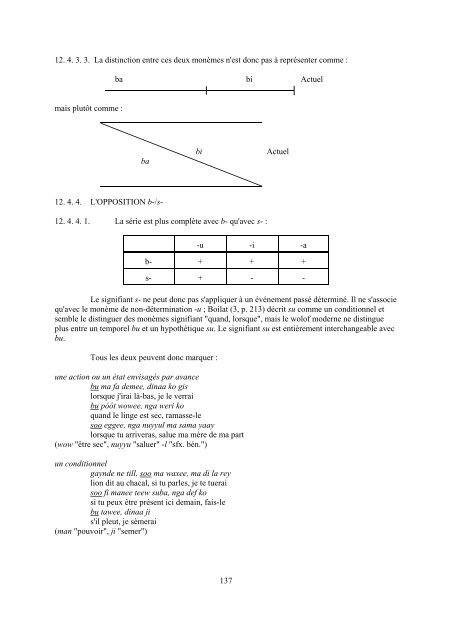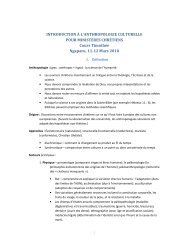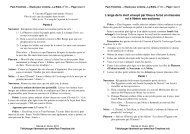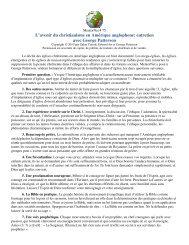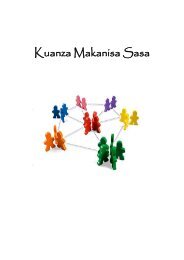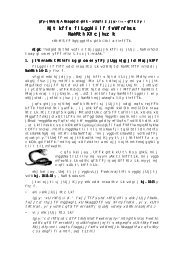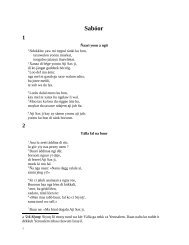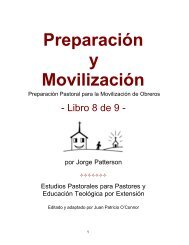LE SYSTEM VERBAL DU WOLOF Par Eric Church - Paul-Timothy
LE SYSTEM VERBAL DU WOLOF Par Eric Church - Paul-Timothy
LE SYSTEM VERBAL DU WOLOF Par Eric Church - Paul-Timothy
You also want an ePaper? Increase the reach of your titles
YUMPU automatically turns print PDFs into web optimized ePapers that Google loves.
12. 4. 3. 3. La distinction entre ces deux monèmes n'est donc pas à représenter comme :<br />
mais plutôt comme :<br />
ba bi Actuel<br />
ba<br />
12. 4. 4. L'OPPOSITION b-/s-<br />
12. 4. 4. 1. La série est plus complète avec b- qu'avec s- :<br />
bi<br />
137<br />
Actuel<br />
-u -i -a<br />
b- + + +<br />
s- + - -<br />
Le signifiant s- ne peut donc pas s'appliquer à un événement passé déterminé. Il ne s'associe<br />
qu'avec le monème de non-détermination -u ; Boilat (3, p. 213) décrit su comme un conditionnel et<br />
semble le distinguer des monèmes signifiant "quand, lorsque", mais le wolof moderne ne distingue<br />
plus entre un temporel bu et un hypothétique su. Le signifiant su est entièrement interchangeable avec<br />
bu.<br />
Tous les deux peuvent donc marquer :<br />
une action ou un état envisagés par avance<br />
bu ma fa demee, dinaa ko gis<br />
lorsque j'irai là-bas, je le verrai<br />
bu póót wowee, nga weri ko<br />
quand le linge est sec, ramasse-le<br />
soo eggee, nga nuyyul ma sama yaay<br />
lorsque tu arriveras, salue ma mère de ma part<br />
(wow "être sec", nuyyu "saluer" -l "sfx. bén.")<br />
un conditionnel<br />
gaynde ne till, soo ma waxee, ma di la rey<br />
lion dit au chacal, si tu parles, je te tuerai<br />
soo fi manee teew suba, nga def ko<br />
si tu peux être présent ici demain, fais-le<br />
bu tawee, dinaa ji<br />
s'il pleut, je sèmerai<br />
(man "pouvoir", ji "semer")


